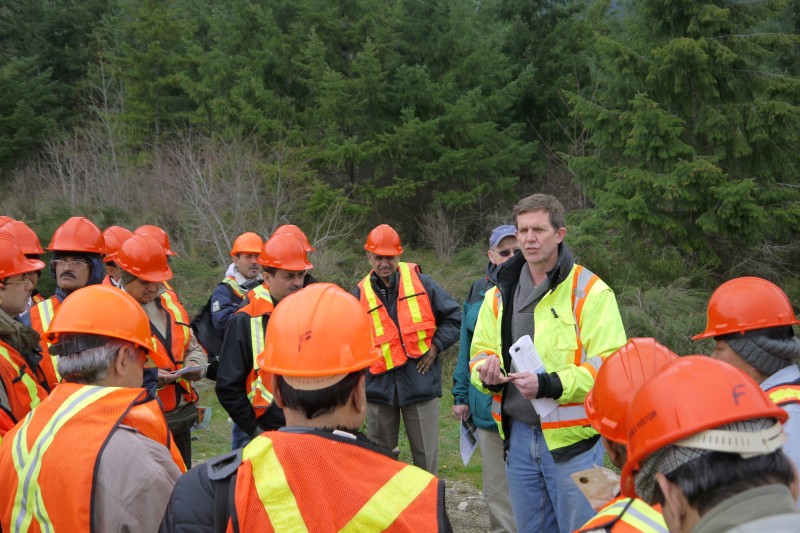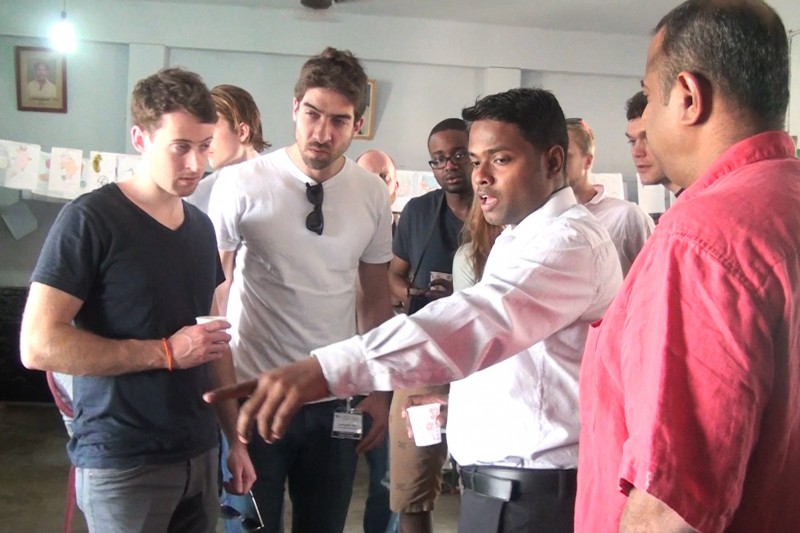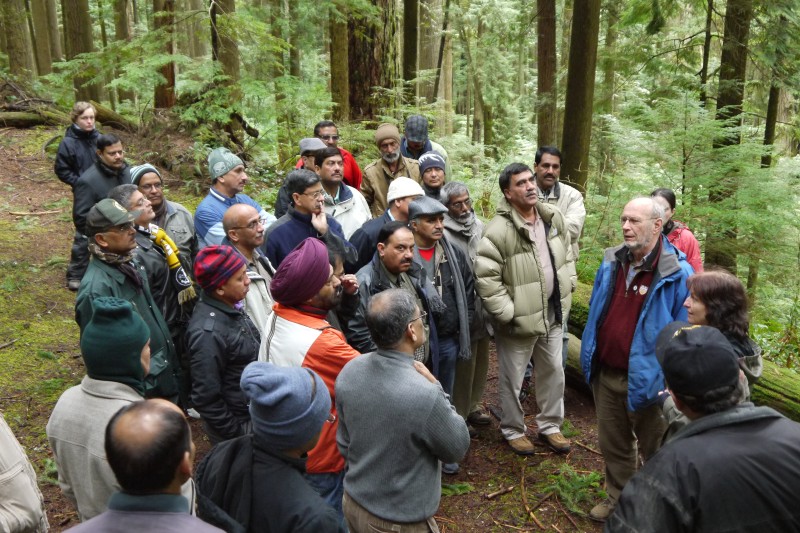UBC and India Collaborate to Innovate



An economic powerhouse with deep Canadian roots, India is a natural global partner of UBC. The partnership goes back almost 50 years, to when UBC was a founding university of the Shastri Institute—an Indo-Canadian effort that encouraged educational exchanges between the two countries. These exchanges were formalized in the ‘90s when UBC’s School of Nursing established a long-term training project in the Punjab region.
Today, the UBC-India connection is growing exponentially.
Since 2013, a $30 million partnership has enabled Indian and Canadian researchers to find solutions to challenges common to both countries. IC-Impacts (India-Canada Centre for Innovative Multidisciplinary Partnerships to Accelerate Community Transformation and Sustainability) teams researchers from UBC, the University of Alberta and the University of Toronto with their Indian counterparts to find community-based solutions to issues that affect both countries, including water quality, unsafe infrastructure and public health.
The Indian Forest Service has turned to UBC—a respected global leader in forestry research and education—to help senior-level Indian forestry officers learn state-of-the-art forest management skills. Jorma Neuvonen, Director of Special Projects in the Faculty of Forestry, says UBC was eager to take part. “We don’t see forests as a provincial or national concern alone. Forests don’t know borders; they are a global concern.”
So far, 360 senior Indian forestry officers have completed the mid-career program at UBC. Program partners include the Indian Institute of Management Bangalore, the Indira Gandhi National Forest Academy and The Maxwell School of Citizenship and Public Affairs in Syracuse, NY. The Indian officers learn best-practice strategies for climate-change adaptation, watershed and wildlife management, indigenous rights protection, and more. Neuvonen says the program has payoffs across the board. “Many of the participants go on to become policy makers in the Indian government. The personal connections forged in BC mean better inter-governmental relations down the road. And they’ve led to enriching Indian exchange programs for UBC students.”
MBA students from UBC’s Sauder School of Business also learn profound and surprising lessons at the Aravind Eye Hospital in Madurai, India. Murali Chandrashekaran, Sauder’s Senior Associate Dean of Strategic Partnerships and Global Initiatives, accompanies them. “We fly our students halfway around the world, take a seven-hour bus ride down a dusty road and they’re thinking, ‘We will go and help these poor people.’ But when we walk into the hospital, they realize they are the ones who have a lot to learn—about business excellence and innovation, and about themselves.”
Indeed, Aravind has become the world’s largest and most efficient eye-care provider. Aravind surgeons perform 60 per cent as many cataract procedures as the UK at one per cent of the cost, with equal or better outcomes. The non-profit has perfected an assembly-line efficiency that manages to be sustainable, while providing free surgery to India’s poorest people.
Chandrashekaran says Aravind is just one example of the low-cost and high- value innovation prevalent in India. “We even have a word for it, jugaad, which means frugal and inclusive. If you think of the complex issues facing Canada—like healthcare reform and economic development—we need this kind of innovation. Indians specialize in it, and UBC recognizes the value of partnering with them.”
These are just a few examples of the kind of far-reaching projects that UBC hopes to pursue with India’s researchers and educational institutions. The UBC-India Liaison Office in New Delhi, opened in 2013, is just ramping up and will create myriad opportunities for collaborations and connections in the coming decade.